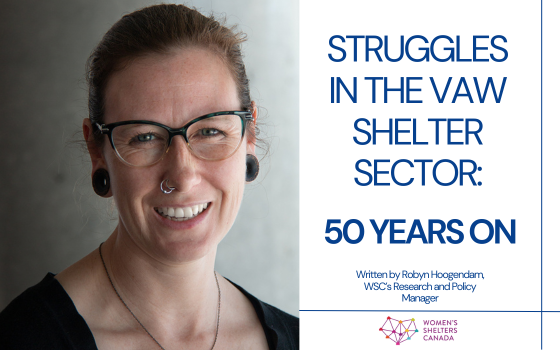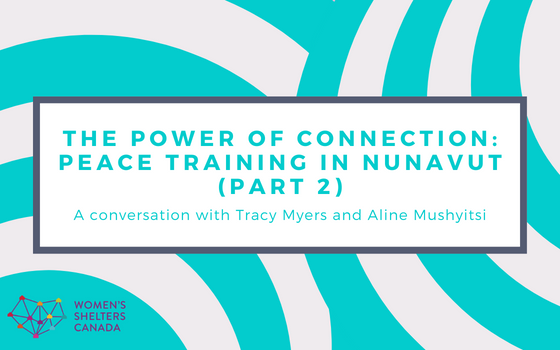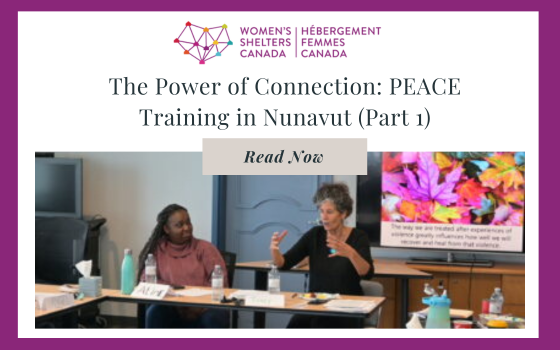At the end of August, WSC’s Kaitlin Geiger-Bardswich (Director of Communications, Development, and Grants) travelled to Halifax to appear on a participant consultation panel with other gender-based violence (GBV) organizations at the Mass Casualty Commission.
The expert panel consisted of GBV leaders from Nova Scotia and across the country, including Emily Stewart, Executive Director of Third Place Transition House and Dawn Ferris, Executive Director of Cumberland County Transition House Association, both of whom were representing the Transition House Association of Nova Scotia (THANS). WSC is a participant of the Commission in coalition with Be the Peace Institute and the THANS.
It was an empowering experience to meet the other members of our Coalition and work together on how best to get our recommendations across to the Commission. We all commented on how well our talking points complemented each other and gave the Commission a broad understanding of the nature of domestic violence from a shelter sector perspective.
The Commission asked us to speak to challenges in addressing intimate partner violence (IPV), key recommendations, and the resources and supports women and children need to be safe from violence.
On the last question, we drew attention to the need for progress on issues that may seem periphery to gender-based violence but directly affect women experiencing it. Examples of this include the lack of transportation in rural areas and a lack of affordable housing across the country.
Kaitlin emphasized the importance of a continuum of services and the importance of supporting women who do not, for whatever reason, move into a shelter. Better funding and capacity are essential for the shelter sector as we’ve seen countless instances of staff burn out, especially during the pandemic. We can’t do this work without properly trained, properly paid people to do it.
Regarding recommendations, Kaitlin stressed that we don’t need more recommendations. GBV organizations have already done the work through decades of inquiries and reports. Last year’s Roadmap to a National Action Plan on Gender-Based Violence spelled out 100 recommendations across 4 pillars, a result of the work of 40 experts from across the country. We don’t need more research; we need action.
Finally, on the challenges in addressing GBV and IPV, Kaitlin spoke about getting the general public to care. At the root, there needs to be a cultural change in how we view forms of GBV, starting with the need to separate the ideas of “private violence” and “public violence.” Domestic violence affects all of society, even if far too many don’t think it does.
Kaitlin asked the question, will the public finally care about GBV if they think they can be collateral damage in a mass casualty? She’s not sure, as they haven’t yet, even though the three deadliest mass casualties in the last 35 years in Canada have all had GBV components (the École Polytechnique shooting, the Toronto van attack, and then the mass shooting in Portapique).
Kaitlin spoke to the Commission on August 31. Four days later, another mass attack by a perpetrator with a history of domestic violence occurred, this time via stabbings in Saskatchewan. The question remains the same, when will we take domestic violence and GBV seriously?
A recording of the panel is available here. Kaitlin appears in four parts: (1) at 1:07, (2) at 2:23, (3) at 5:01, and (4) at 6:19.
This is the third blog post in our series about the Mass Casualty Commission. See Part 1 here and Part 2 here.



